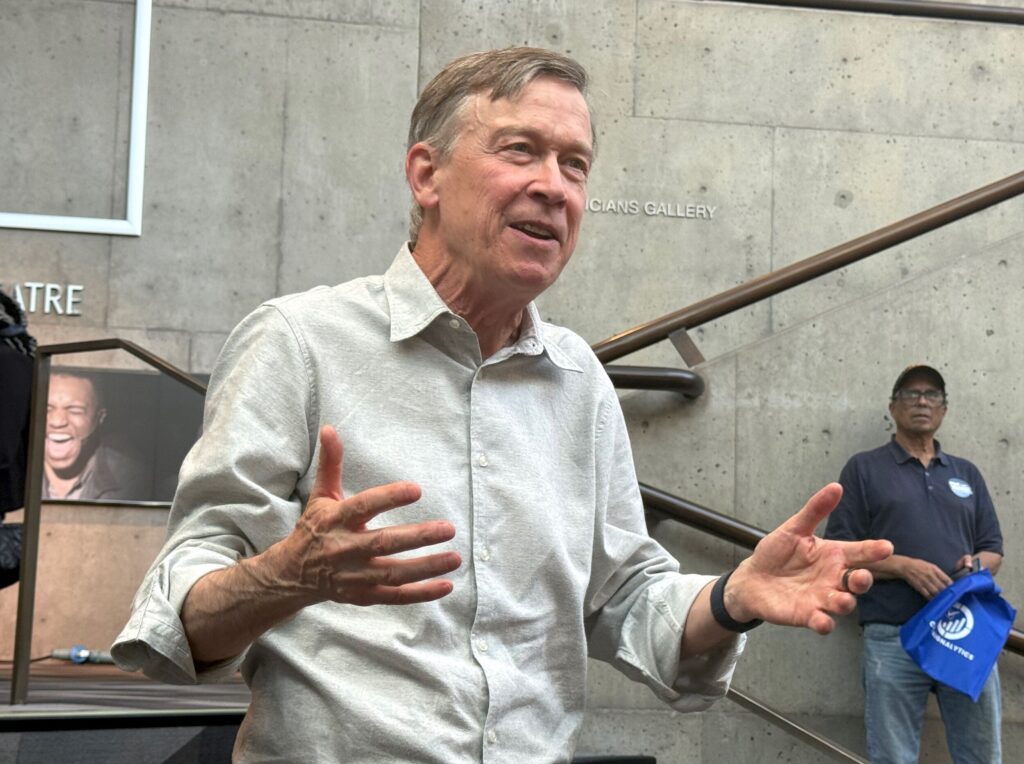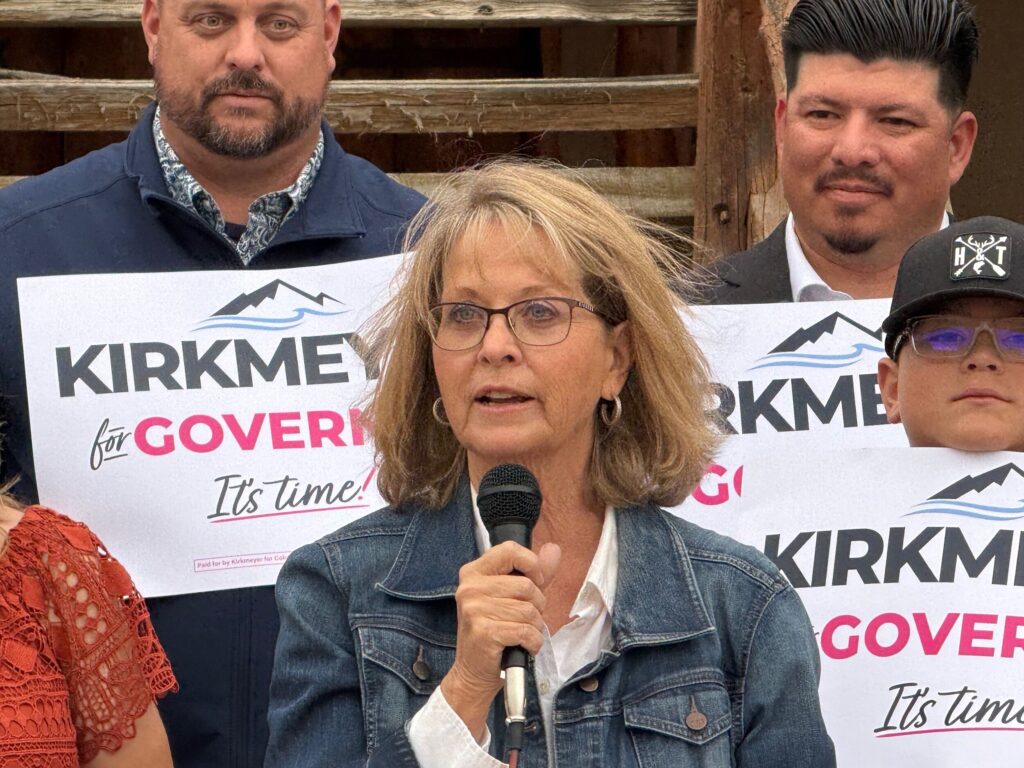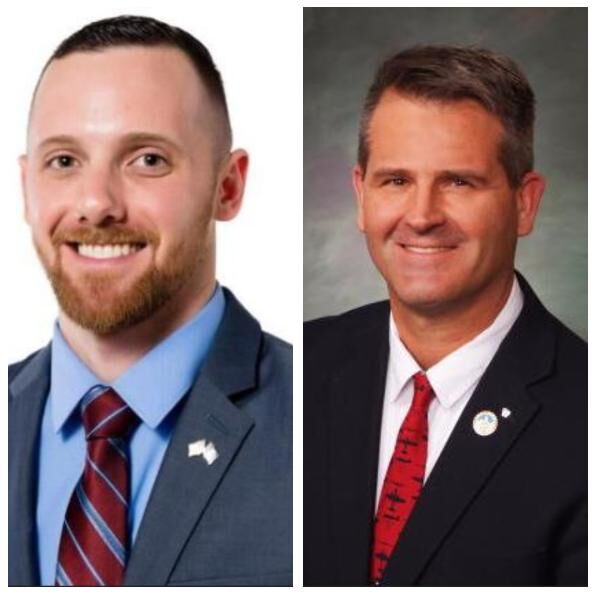Day 2 of Colorado General Assembly 2024 special session: Live Blog
We’re tracking the Colorado General Assembly’s special session on property taxes. This week’s special session is focused on a property tax deal crafted by legislative leaders, the governor and two groups, Advance Colorado and Colorado Concern. The two groups pledged to withdraw two property tax ballot measures should the deal win approval from the General Assembly. Follow us here.
Wrapup
What happens tomorrow is final votes on the three bills the House passed today. The concurrent resolution (HCR24B-1001) will need 44 votes, or two-thirds, to move out of the House. The other two bills will need a simple majority vote.
Should all three pass (and we’re hearing it’s not yet a guarantee on the deal bill), all three would move to the Senate.
The Senate would have to introduce the bills, run them through committees and through second reading tomorrow, assuming they want to finish the special session on Thursday. A final vote would then take place on Thursday, and that’s wrap it up.
3:35 p.m. No herd of COWs. Just one. And we’re done for the day.
The first (and as it turns out, only) COW amendment is on wolves, the amendment previously offered on the concurrent resolution. It fails on a 22-37 vote, with more than a few Democrats voting in support.
With that out of the way, the House has now adjourned until 9 a.m. tomorrow.
3:30 p.m. The deal bill passes
HB24B-1001 has passed after about 3 1/2 hours of debate. The amendment to carve-out fire districts was never introduced; the only amendments that passed were from House Speaker Julie McCluskie and presumably negotiated with the governor and the conservative groups.
Progressive Democrats did not get what they wanted on this today. It will be interesting to see how they vote.
On to the committee of the whole (COW) report, and I’ve been told there will be a COW amendment on the wolf amendment to the concurrent resolution. There’s a joke in there somewhere…
2:05 p.m. New fiscal note
There’s a new fiscal note on HB24B-1001, based on the changes in House Appropriations yesterday (and thanks to Greg Sobetski of Legislative Council for the numbers).
Bottom line: homeowners would save about $114 million (or their taxes would be reduced by $114 million, although the actual increase would be higher than that) in 2025. Commercial property owners would save $140 million, a 45/55% split.
Interestingly, in property tax year 2026, homeowners would save $111 million and commercial $180 million. Keep in mind that at the time Gallagher was repealed, commercial building owners were paying four times the amount of property taxes than what homeowners were paying. So while commercial building owners are getting a bigger break, they’ve been paying considerably more in property taxes over time.
1:45 p.m. Progressives begin their amendments
Reps. Tammy Story, D-Evergreen and Javier Mabrey, D-Denver, both have offered amendments intending to address some of the concerns progressive Democrats have had with this bill. Story’s amendment had to do with allowing school districts statewide to retain additional revenue.
Mabrey said the property tax bill will disproportionately benefit wealthier Coloradans, although renters are much more at risk than homeowners. “Where is the special session for renters?” he asked. His amendment makes sure additional relief is targeted to those who need it. It would not allow the additional tax relief to be directed toward those with second homes. This is roughly the same concept from HB24B-1002, a bill Mabrey introduced Monday but was rejected by the House Appropriations Committee.
Story’s amendment failed; Mabrey withdrew his.
Rep. Lorena Garcia, D-Adams County, offered an amendment to make the tax cut less regressive in 2026. It would apply to median homeowners who would save more on property taxes than wealthy homeowners.
“We’re here because there really is a need to provide some kind of relief in the form of a property tax cut to some people who own property,” she said.
She later withdrew the amendment.
1 p.m. Denver chamber also pledges not to pursue property tax limits
In a letter to lawmakers, the Denver Metro Chamber reiterated its position supporting the deal reached by Gov. Jared Polis, Advance Colorado and other parties to reduce property taxes further than what lawmakers already enacted earlier this year.
The business group also said it, too, is pledging not to pursue any future initiative to limit property taxes — at least not for the next six years.
“We are so encouraged by the potential of a legislative solution that we have not taken positions of support or opposition to initiatives 50 or 108 yet – hoping that a principled compromise this week will make further action unnecessary,” the chamber said.
“Yesterday, we also agreed to add our own commitment to that of Advance Colorado and Colorado Concern to not offer any property-tax related ballot measures for at least six years if the legislature passes this compromise and does not act contrary to its purposes. We made this commitment for clarity that our Chamber supports and will continue to support this compromise agreement which provides meaningful tax relief and protection from tax spikes in the future,” the group added.
12:30 p.m. Another McCluskie amendment passes
This one (known as L47), extends the life of the property tax commission by an extra six months, so that they evaluate “the equity of valuation for assessment established for property” in both Senate Bill 24-233 and HB24B-1001.
12:00 p.m. Amendment gives local governments flexibility in growth cap
House Speaker Julie McCluskie has the first amendment of the day to HB24B-1001, the main deal bill on property taxes.
McCluskie said the intent of her two-page amendment is on the caps. She said the caps are limiting — so the amendment provides a carry-forward for local governments and schools. If they do not hit the ceiling, they can carry forward any of the balance of that cap that they did not use. The cap is 10% for local governments and 12% for schools over a two-year assessment period.
“This provides a smoothing if there’s an up and down in assessed valuations, either growth or decline.” The amendment passed.
Added for some further clarification: if revenues grow by 10% for a school district in one year, they haven’t used the full amount of the cap (12%), so they can roll forward that 2% into the next year. If revenues grow by another 7% over that two-year period, for a total of 14%, the district would be able to retain 12% of that revenue.
11:45 a.m. A creative argument
Here’s most creative argument of the day so far: Rep. DeGraaf has pointed out that under the Sixth and 14th amendments, a person cannot be deprived of life, liberty or property. “You have a bleeding artery in the economy of Colorado,” referring to the impact of wolves on agriculture. He introduced an amendment, which failed. The bill has been adopted on a voice vote.
Now onto HB24B-1001, the “deal” bill. It will be interesting to see what kinds of amendments show up for this one.
11:25 a.m. Show up, go home
Apparently, the Senate gaveled in for about 30 seconds and then sent everyone home. According to Senate GOP spox Josh Bly, Dems were told to not even show up, so there was just a handful of Republican senators who came in, as well as the president and majority leader.
Weissman is asking for a “no” vote on the wolf amendment.
This is a level of detail that should not be in constitutional language, he told the House. Initiatives could take many forms, and Weissman said this could already happen. “We’ve already got this covered, conceptually. I do appreciate the conversation about wolves, and that was a measure very closely decided,” he said. “(But) let’s return property tax decision-making” to the citizens.
The amendment failed on a voice vote.
11:15 a.m. Show up, disrupt
We’ve had a bit of a disruption, which is being managed by the state patrol. A member of the public caused a scene in a Senate committee room yesterday and was removed. He showed up again a few minutes ago outside of the House and was removed by the state patrol. Exactly what his issue is isn’t known.
11:10 a.m. We’ve got wolves!
One of the more interesting conversations in yesterday’s hearing on this bill was on wolves.
The logic is that if citizens should have the right to vote on property taxes at the local level, because property taxes are a local issue, why doesn’t that apply to other things that have a local impact?
This is one of the major sticking points on the issue of wolf reintroduction — that voters, mostly on the Front Range, imposed the wolf reintroduction on communities that did not want them and did not support Proposition 120 in the 2020 election.
There’s now an amendment on the concurrent resolution that reflects this idea from Rep. Matt Soper, R-Delta. It would add language that basically says citizens should be able to vote on any property tax revenue (to keep it within the subject of the bill) derived from livestock and that is going to be reduced by a statewide initiative on introduction of predatory species that preys on livestock and “that does not have a substantial well-established population” in Colorado, including wolves.
Got that? It basically allows citizens in a local government to vote on the introduction of predatory species, including wolves.
10:40 a.m.
The debate right now is about an amendment offered by Rep. Stephanie Luck, R-Penrose, to exempt school districts from the citizen vote. It fails.
Expect a lot of amendments on this bill and on the main deal bill that will follow, but that’s likely not going to be for a while. I’m hearing there’s no “white smoke” yet on the negotiations.
10:30 a.m. Special elections?
Opponents of the resolution — currently, Rep. Ken DeGraaf, R-Colorado Springs, is making this argument — are pointing out the way this is structured will require a local government special election in order to put the revenue changes (other than an increase) into effect. For small local governments, that could be quite the expense. Citizens don’t need 15 different special elections, he added.
“The citizens of this state have been on our case to come up with a statewide solution,” said Rep. Rick Taggart, R-Grand Junction.
If the city of Grand Junction passes one set of bill at a certain valuation percentage, and the city of Fruita does something, that’s 20% or 30% below, what happens? he asked. (They moved to Fruita, apparently). “It goes against everything we’ve been trying to do, in helping people live close to where they work. We’re introducing legislation that will move people based on the valuation. This would reverse what the legislature is trying to do,” he said.
The fiscal analysis does not show any money provided to local governments for special elections.
Speaking in favor was Rep. Jennifer Parenti, D-Erie, who said the problem with property taxes does not exist at the state level — it’s a local government issue.
“We have allowed a very dangerous narrative to take hold in this state,” she said, one that says the state of Colorado has a role to play in how much people pay in property taxes. Citizens need to go to their local government for that conversation, she said. “This resolution is the only thing we should be talking about in this special session,” Parenti said, arguing the conversation about property taxes should return to the local governments where they belong.
Parenti is among the lawmakers who will not be returning in 2025; she recently decided not to run for reelection.
10:05 a.m.
The agriculture bill passes on second reading (voice vote) with one technical amendment.
Now onto the concurrent resolution, HCR24B-1001, which changed dramatically between the draft that Colorado Politics obtained a week ago to what was introduced yesterday. The original bill would have banned any statewide citizen initiatives on property taxes, which drew concerns that it would infringe on citizens’ rights. The introduced version requires a vote by citizens in a local government before any limitations on property tax revenue coming from a statewide initiative can be implemented.
As it now exists, HCR24B-1001 is fairly close to a ballot initiative, Proposition 95, which was floated last year but didn’t make it to the title-setting process.
This bill will require a two-thirds, or 44 votes, to make it out of the House in order to head to this November’s general election ballot. The Senate will be another matter; it will require 24 votes and that’s going to be a fairly major hurdle. Sources said Senate Republicans have no interest in seeing this go to the ballot, and at least one Republican will have to flip for it to make it out of the Senate.
9:45 a.m.
First up is House Bill 24B-1003, the agriculture bill.
9:40 a.m.
Now we’re down to three. Sources have told Colorado Politics that HB24B-1007, the Ortiz bill on accessible housing, will not move forward.
The House is now onto debate on the three remaining bills left in the special session.
9:20 a.m. Day Two
Thanks to the decision last night by the House that it would not take up second reading debate on the three bills that passed out of committees (including the “deal” in HB24B-1001), the Senate has nothing of consequence to do today. The senators will gavel in at 10 a.m. and likely to adjourn for the day shortly thereafter.
What’s on tap for today in the House:
HB24B-1001, which passed House Appropriations on a 7-3 vote Monday evening. The second reading delay is due to continued negotiations over the bill, and a concern that progressive Democrats are not yet on board with it. The sponsors are House Speaker Julie McCluskie, D-Dillon; House Minority Leader Rose Pugliese, R-Colorado Springs; Sens. Chris Hansen, D-Denver; and, Barbara Kirkmeyer, R-Weld County.
HCR24B-1001: the constitutional amendment that would require a local vote in order for a statewide property tax initiative that limits revenue to go into effect. The sponsors are Rep, Mike Weissman, D-Aurora and Hansen.
HB24B-1003: a bill to make permanent a business personal property tax exemption for ag equipment and to expand that exemption to greenhouses that grow crops that are in a “raw and unprocessed state.” The sponsors are Reps. Matt Soper, R-Delta and Junie Joseph, D-Boulder; and Sen. Kevin Priola, D-Henderson.
Waiting in the wings
HB24B-1007 awaits a House Appropriations Committee hearing. It would reduce assessment rates by up to 2% for accessible housing properties constructed after January 1, 2025. It has a $900,000 cost to state education funding in the first year and $1.8 million in the second, which may give some lawmakers in appropriations heartburn. The sponsor is Rep. David Ortiz, D-Centennial.










